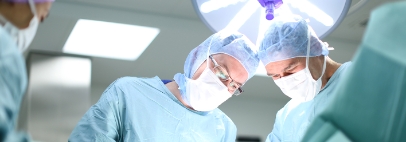Computed tomography (CT) is a special X-ray examination that uses X-rays to produce images of the body. These are so-called cross-sectional images, i.e. the body is virtually divided into the finest layers, allowing a view of the inside of the body. This provides important information about the location of centres of disease. We have a modern multi-line CT scanner at our disposal, which operates in accordance with the latest findings in radiation protection and minimises radiation exposure as far as possible.
Clarification of risk factors before the examination
An iodine-containing contrast agent is administered for most computerised tomography examinations. If you have any known intolerances or allergies to contrast media, please inform us before the examination begins.
Our range of CT services covers all regions of the body:
- Brain/skull incl. CT angiography (circulatory disorders)
- Base of the skull and temporal bones (inner ear and middle ear)
- Facial skull (paranasal sinuses)
- Neck incl. CT angiography of the cervical arteries
- Thorax, abdomen and pelvis
- CT angiography (vascularisation of all parts of the body)
- Spine incl. CT myelography
- Extremities and joints
- CT-controlled joint and spinal infiltrations
- CT-guided biopsies, punctures and drainages
The radiology team will inform you in detail about the procedure before the start of the examination and will be happy to answer any questions you may have.



.jpg)

